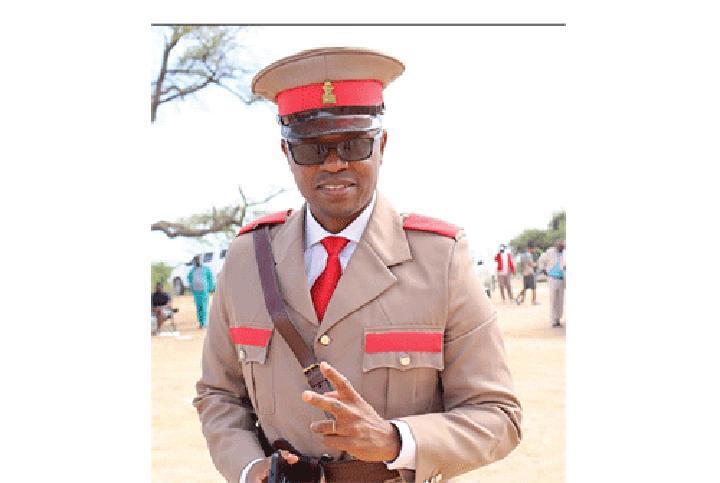Africa-Press – Namibia. Namibia commemorated its first official Genocide Remembrance Day on Wednesday, 28 May. The day honours the memory of the Herero and Nama people who were massacred by German colonial forces between 1904 and 1908.
New Era journalist Lahja Nashuuta (LN) sat down with Yarukeekuro Ndorokaze (YN) – a descendant of genocide victims – to reflect on the significance of the day, and to analyse the Joint Declaration on Genocide, apology, and reparations between the Namibian and German governments.
LN: Please introduce yourself, and share what this day means to you personally.
YN: My name is Yarukeekuro Ndorokaze. I am a descendant of the Ovaherero and Nama genocide. My family, like many others, still lives with the scars of that history of displacement, dispossession and silence.
The official recognition of Genocide Remembrance Day is deeply significant. For too long, the Ovaherero and Nama people have marked this tragedy in isolation. Today, that silence is finally broken at the national level. This day forces the nation to confront a brutal chapter in our history, and offers all Namibians the opportunity to understand the basis of our calls for justice and reparations.
LN: What makes this recognition so important for the affected communities?
YN: This is about visibility, dignity and truth. For decades, our pain was excluded from Namibia’s national narrative. This official recognition brings the genocide into the centre of public discourse, where it belongs.
We hope this will lead to broader awareness so that all Namibians, not just the affected communities, understand what happened between 1904 and 1908, and why there is a rightful demand for reparative justice.
LN: Beyond national recognition, what are the key demands from the affected communities which you picked up?
YN: The demands are grounded in a three-pronged framework: recognition, apology and reparations.
Firstly, there must be formal recognition that what occurred was genocide: intentional, targeted and systematic. While there is growing agreement on this, we demand that it be acknowledged unequivocally, unconditionally and unreservedly.
Secondly, a genuine apology must follow. Not symbolic gestures, but a clear, public acknowledgment of wrongdoing should be offered without preconditions. That is what reconciliation truly begins with.
Thirdly, we demand reparations. No one is asking for the impossible. We know the dead cannot be brought back. But there are ways to repair what was broken. Land reform, economic restoration, cultural revival and institutional support are just a few areas where reparative justice can be meaningfully applied.
LN: Has the German government officially apologised?
YN: No. While there have been statements indicating a willingness to apologise, there has been no formal apology issued to date. The approach has been “nothing is agreed until everything is agreed”.
Germany has acknowledged what took place was genocide, but the central point of contention remains reparations and crucially, the lack of direct involvement of the affected communities in the negotiation process.
LN: Do you believe the current negotiation framework is fair or inclusive?
YN: No, and that is precisely the problem. Any process which excludes the voices of the affected communities, represented by leaders they themselves have chosen, is fundamentally flawed.
It is unacceptable for any agreement to be concluded without the direct participation of the Ovaherero and Nama people. We must be at the table not as observers, not as tokens, but as equal parties. Anything less would be a betrayal.
LN: Is there a need for a new negotiation platform that includes direct community representation?
YN: Absolutely. And I believe there’s growing consensus on that. As late president Hage Geingob once said, we may not reach unanimity, but we can reach consensus. That consensus must be based on inclusion.
Every voice affected by this genocide must be heard. When a final agreement is reached, it must reflect the lived experiences, demands and aspirations of our communities, not just government-to-government diplomacy.
LN: What is your view on the Joint Declaration on the Genocide between the two nations?
A: As things stand, we don’t have enough information to comment meaningfully. What we do know is that any final declaration or agreement must involve transparent consultation with the affected groups.
It’s not just about concluding a deal; it’s about ensuring that the deal is just, legitimate and truly representative. Consensus must be the guiding principle, not convenience or expediency.
LN: As someone who has been part of this long struggle, how do you reflect on this moment?
YN: I feel deeply privileged to witness this day. When we first began speaking publicly about the genocide, we were often dismissed, doubted or ignored. Today, that conversation has been nationalised.
This recognition is a major achievement, but it cannot be the end. It must become a starting point for restitution and revival. In the years ahead, I hope this day becomes not only a moment of remembrance, but a platform for transformation, where the nation discusses how to rebuild the futures which genocide tried to erase.
Our communities must now ask: Where would we be today, had this atrocity not happened? And more importantly: how do we reclaim that path forward together?
For More News And Analysis About Namibia Follow Africa-Press






